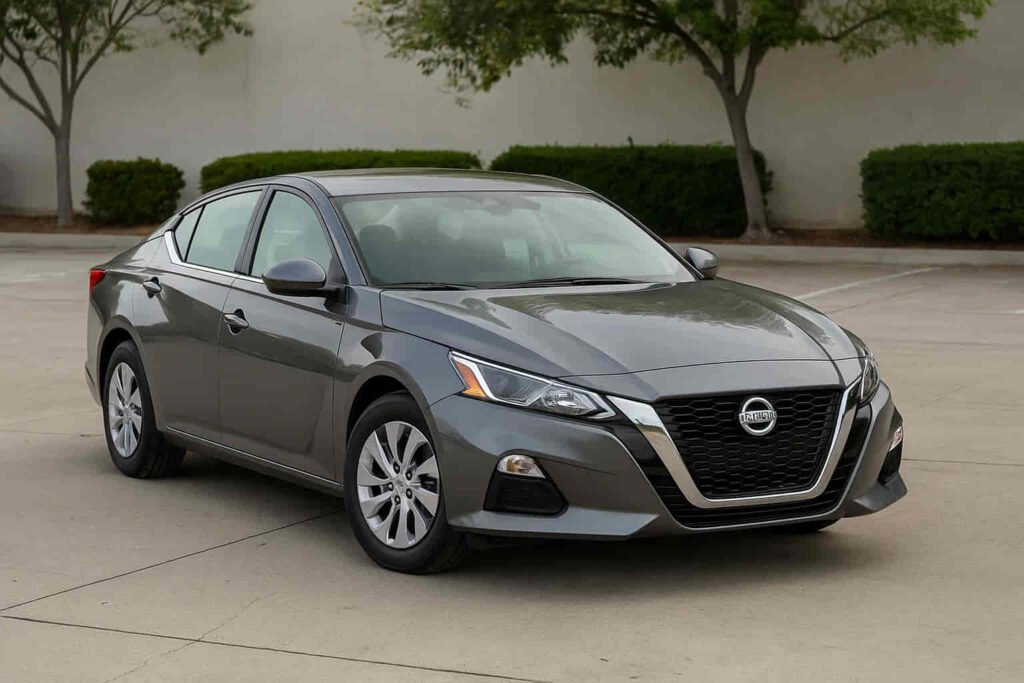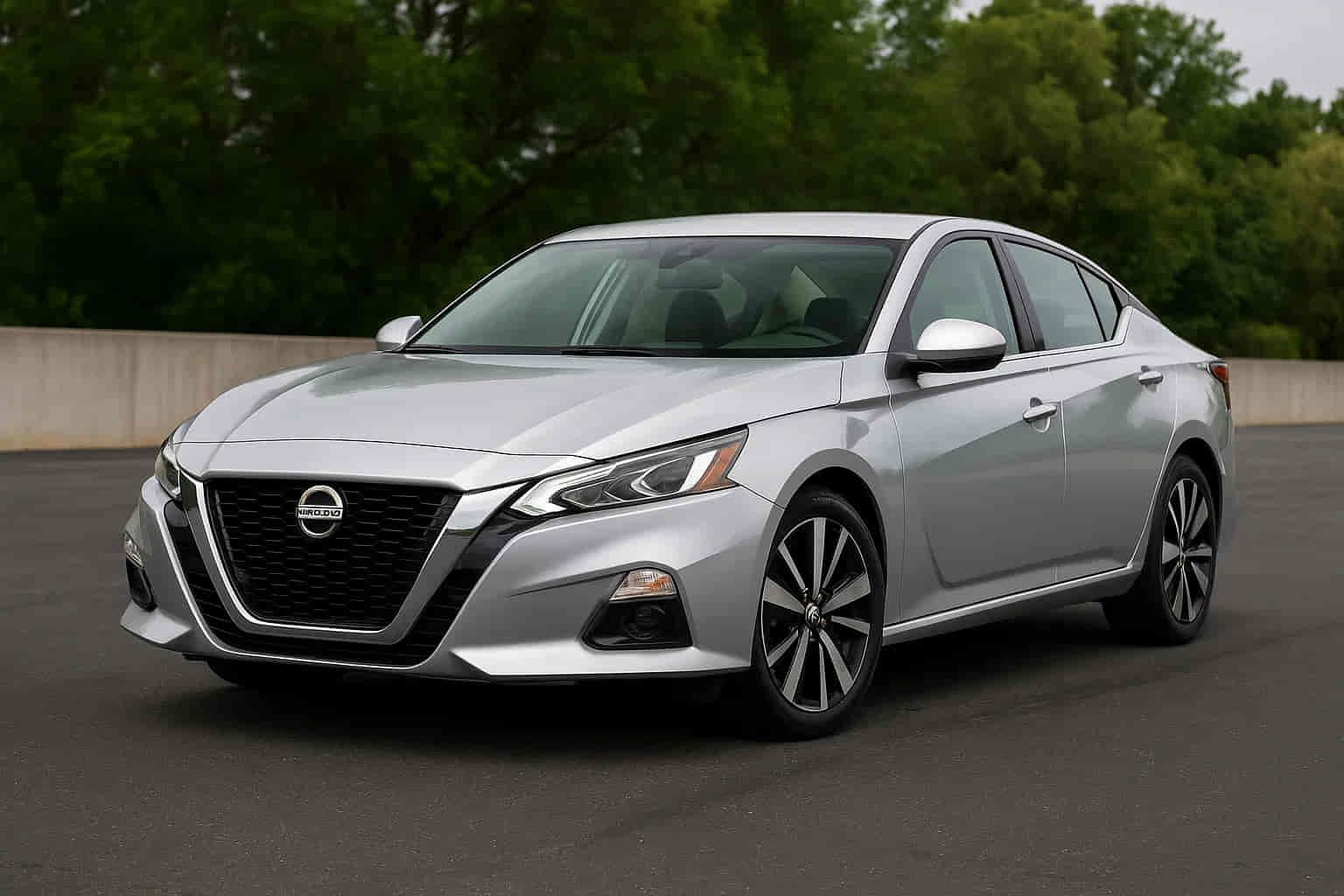Choosing the right fuel for your Nissan Altima is more than a routine stop at the gas station. With fuel prices rising in 2026 and drivers seeking better efficiency, understanding the recommended Nissan Altima gas type has become essential. Many owners wonder if premium fuel can unlock extra performance or whether regular unleaded is not only enough but also the smartest choice for long-term costs. This uncertainty often leads to unnecessary expenses or even concerns about engine health.
The Altima has built its reputation as a reliable sedan that balances performance, comfort, and fuel economy. However, the type of gas you put into its tank directly impacts those qualities. From octane ratings to annual fuel costs, every detail matters for drivers who want to maximize both value and efficiency. In this guide, we break down the best fuel options for the Nissan Altima, explain how gas type affects engine performance, and calculate what you can expect to spend on fuel in 2026. Whether you’re a new owner or considering the Altima as your next car, this overview will help you make informed decisions every time you fill up.
Nissan Altima Gas Type Overview
The Nissan Altima gas type is one of the most common questions drivers ask before heading to the pump. According to Nissan’s official recommendation, the Altima is engineered to run efficiently on regular unleaded gasoline with an octane rating of 87. This means that for most trims and engines, there is no requirement to spend extra money on premium fuel. In fact, using regular unleaded not only keeps running costs lower but also aligns perfectly with how the engine was designed to operate.
However, some Altima models equipped with the turbocharged 2.0-liter engine may respond differently. While the car can still operate on regular fuel, premium gasoline with a higher octane rating may help maintain peak performance under heavy acceleration or demanding driving conditions. This does not mean that premium is mandatory, but it highlights how fuel choice can subtly influence performance and efficiency depending on the engine setup.
Understanding octane ratings is crucial here. The number does not indicate fuel quality but rather its resistance to knocking, which protects the engine during combustion. For the standard Altima driver, 87 octane offers the best balance of cost and reliability. For those who want to push their turbo Altima to its limits, premium fuel can be an optional upgrade, but not a necessity.
Regular vs Premium Gas for Nissan Altima

For many Nissan Altima owners, the debate between regular and premium gas comes down to a balance of cost versus potential performance. The reality is that the majority of Altima models, especially those powered by the 2.5-liter four-cylinder engine, are optimized for regular unleaded 87 octane. Using premium fuel in these trims provides no measurable advantage in horsepower, torque, or fuel economy. Instead, it only increases the overall cost of ownership without delivering real-world benefits.
The conversation shifts slightly when looking at the Altima’s 2.0-liter variable compression turbo engine. While it is fully capable of running on regular gas, drivers who demand maximum acceleration or frequently drive at highway speeds may notice smoother performance and reduced engine knock when filling up with premium. Premium’s higher octane rating offers additional protection under heavy load, but this improvement is subtle rather than dramatic. In everyday commuting, the difference is negligible.
Ultimately, the Nissan Altima gas type decision is about practicality. Regular fuel satisfies the engine’s requirements, ensures longevity, and minimizes fuel costs. Premium may be an optional upgrade for those who prioritize performance, but it should never be mistaken as a necessity. Understanding this distinction allows drivers to save money while still protecting their vehicle, proving that smarter choices at the pump start with knowing what the Altima truly needs.
Nissan Altima Fuel Economy & Costs in 2026
Fuel economy has always been one of the Nissan Altima’s strongest selling points, and in 2026 this remains a key factor for buyers who want both performance and affordability. According to EPA estimates, the Altima achieves up to 28 mpg in the city and 39 mpg on the highway with its 2.5-liter engine, making it one of the most efficient midsize sedans in its class. These numbers translate into significant savings at a time when gas prices are fluctuating and drivers are more concerned than ever about long-term operating costs.
When looking at real-world expenses, the annual fuel cost for a Nissan Altima typically ranges between $1,700 and $2,000 depending on driving habits and regional fuel prices. This puts it in a competitive position against rivals like the Toyota Camry and Honda Accord, both of which have similar efficiency but sometimes slightly higher yearly fuel expenses. For Altima owners who stick to regular unleaded gas, the savings compound over time, especially for those who drive long commutes or rack up higher mileage annually.
It’s also important to note that the choice between regular and premium can impact these costs. While premium fuel may offer a small performance edge for turbo models, the extra price per gallon often outweighs any efficiency gains. This is why understanding the Nissan Altima gas type is not just about what goes into the tank, but also about making smarter financial decisions for the years ahead.
Common Mistakes with Nissan Altima Gas Type
Many Nissan Altima owners assume that choosing fuel is a simple task, but misconceptions about the Altima’s gas type often lead to unnecessary costs or even long-term damage. One of the most frequent mistakes is believing that premium fuel automatically improves performance. For most Altima trims, premium gasoline provides no added horsepower or efficiency compared to regular unleaded. This misunderstanding not only increases expenses but also creates false expectations about what the car can deliver.
Another issue arises when drivers experiment with fuels that are not designed for the Altima, such as high-ethanol blends like E85. While some stations promote these options as cheaper or more eco-friendly, they can cause engine knocking, reduced efficiency, and even void certain warranty protections. The Altima’s engine management system is tuned for conventional unleaded gasoline, and using the wrong fuel type risks unnecessary wear and costly repairs.
Even small mistakes, like consistently ignoring octane recommendations, can add up over years of ownership. An engine that runs on the wrong fuel may suffer from reduced longevity, increased maintenance needs, and higher emissions. Understanding that the Altima is optimized for 87-octane regular gas is the simplest way to avoid these problems. Choosing the right fuel is not about chasing myths but about protecting both the performance and value of your car.
Tips to Maximize Fuel Efficiency for Nissan Altima Owners
Even when using the correct Nissan Altima gas type, fuel efficiency is not guaranteed without smart driving habits and proper vehicle care. Many owners underestimate how much their behavior on the road can influence fuel consumption. Smooth acceleration, steady speeds, and anticipating traffic flow all help the Altima reach its advertised miles per gallon. In contrast, aggressive driving, frequent braking, or extended idling can quickly erode efficiency and increase annual fuel costs.
Maintenance also plays a crucial role in keeping fuel consumption under control. A well-maintained engine, properly inflated tires, and clean air filters ensure that the Altima operates at peak efficiency. Neglecting these details forces the engine to work harder, burning more fuel than necessary. Regular servicing not only extends the life of the car but also saves money at the pump.
Fuel quality matters too. Sticking to reliable gas stations that meet industry standards helps reduce the risk of contaminants that can affect combustion and performance. Even if the Altima is designed to run on 87-octane regular gasoline, ensuring that the fuel itself is clean and consistent is another way to safeguard efficiency.
Ultimately, maximizing the Altima’s fuel economy is about more than just the type of gas. It’s the combination of correct fuel, mindful driving, and consistent maintenance that allows owners to get the most value out of every tank, proving that small choices make a significant difference over time.
FAQs about Nissan Altima Gas Type
Questions about the Nissan Altima gas type are some of the most common among both new and longtime owners. One frequent concern is whether the Altima requires premium gas to run at its best. The answer is simple: it does not. For nearly all trims, including the widely used 2.5-liter engine, regular unleaded with an 87-octane rating is the recommended choice. Premium fuel may be used without harm, but it provides little to no tangible benefit for everyday driving.
Another question often raised is what happens if an Altima owner accidentally fills up with a different fuel, such as E85 or a higher ethanol blend. While a small amount in the tank is unlikely to cause immediate damage, continuous use of non-recommended fuels can result in engine knocking, reduced efficiency, and potential warranty complications. This is why Nissan explicitly advises against fuels with high ethanol content.
Owners of the 2.0-liter turbocharged model also wonder if premium is a necessity. While the car runs well on regular gasoline, premium can help maintain smoother performance under demanding conditions. Still, it remains optional rather than mandatory.
In the end, most of the confusion around the Altima’s fuel requirements stems from common myths about octane and performance. Knowing that the vehicle is optimized for regular unleaded 87-octane gas eliminates doubt and helps drivers save money while protecting their engine for years to come.
Conclusion
The conversation around the Nissan Altima gas type often sparks more confusion than clarity, yet the truth is refreshingly straightforward. The Altima was engineered to perform at its best with regular unleaded 87-octane gasoline, a choice that balances affordability, reliability, and efficiency. For the majority of owners, there is no need to pay extra at the pump for premium fuel, since the performance gains are negligible in everyday driving.
What makes this decision even more important in 2026 is the rising cost of fuel. Every dollar saved on unnecessary premium gas translates into meaningful long-term savings, especially for drivers who log thousands of miles per year. While turbocharged Altima models may see slight benefits from premium under demanding conditions, the difference remains optional rather than essential.
Ultimately, choosing the right gas is not just about following the manufacturer’s recommendation but also about protecting the value of your car and making smarter financial choices. The Altima’s appeal has always been its ability to deliver comfort and efficiency without demanding high ownership costs. By understanding its true fuel requirements, owners can drive with confidence, knowing they are getting the best balance of performance and savings every time they fill up.

